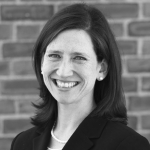
The old saying goes that knowledge is power. But before knowledge exists, its creation is power. Not long ago very few non-Asian Americans knew that Japanese Americans were imprisoned in internment camps during World War II. The existing power dynamic, which devalued the Japanese American community, allowed the unflattering fact of the forced relocation and confinement of thousands of U.S. citizens to be virtually omitted when the history of the war was written in the years immediately afterward. It appeared in few if any books. Discussing and teaching it was fiercely resisted—and continues to be. The Trail of Tears, the Rosewood Massacre, the Tulsa Massacre, and the Wilmington Coup are similar examples. Knowledge and power, and how the two are intertwined, crucially impact our societies and the world.
Academics are increasingly studying how human knowledge takes shapes that conform to the power dynamics in existence during the process of building that knowledge. Two researchers examining this nexus are Dr. Margaret Post and Dr. Morgan Ruelle, both PhDs and professors in the Department of International Development, Community, and Environment at Clark University. Their work examines and encapsulates existing research on the process of knowledge creation in a very specific area—the realm of engaged scholarship, which is a collaboration between academic researchers and community partners. But this has broader implications. Power equity may be the way to create the best knowledge bases, allowing better and more equitable decisions to be made in all aspects of human endeavor.
“Our work focuses on understanding how power operates in engaged scholarship,” Dr. Post explains. “We ask questions like: How does power show up in the processes of co-producing knowledge with practitioners and community members? How is power recognized and addressed in collaborative research? Typically, engaged scholarship has a direct connection with the communities, organizations, groups of people, and environments that are most impacted by the research. Relationships are central in this context, especially because scholarly inquiry and knowledge creation extend beyond the boundaries of traditional academic research.” Dr. Post points out that in these contexts dynamic interactions occur between researchers and participants. Differences in identity, positionality, and resources often surface during the research process. “When power issues go unaddressed the research outcomes may not have the most sustainable impact.”
“Our work focuses on understanding how power operates in engaged scholarship,”
Dr. Post is currently helping to shape an upcoming edition of the peer reviewed academic journal Gateways, which provides a forum for discussing processes and practices related to university-community engagement. “My reflections on collaborative research with other engaged scholars was unearthing important insights that propelled me to pursue this special issue with the editors at Gateways. My expertise is in public policy and community organizations, while Dr. Ruelle is an ethnobotanist with expertise in biodiversity and climate adaptation. Our backgrounds and training are quite different, yet we are both interdisciplinary scholars who aim to co-create knowledge with those most directly impacted by the research.”
“We are now developing this collection of papers [for Gateways] on power in engaged scholarship. This project is less about a lack or abundance of data, and more about a need for the field to have frameworks and models that support meaning making for scholars and communities about power in the research process. Some disciplines have addressed power relations in discipline-specific methodologies, but the community and civic engagement field as a whole has suffered from a lack of models and analysis of power relationships between researchers and communities/practitioners. This special issue is one step toward filling that gap.”
“We hope that by bringing scholars into conversation with one another about power we can better explore the methodological and conceptual implications of power in collaborative scholarship, improve the relationships that scholars have with their community and practitioner colleagues beyond the academy, and increase the durability and reliability of the research outcomes. This is especially true as researchers aim to bring new knowledge into the public arenas of government, business, and society.”
The new knowledge Dr. Post references has already been filtering into government, business, and society, but not without controversy and resistance. In addition, breakdowns between scholarly researchers and communities remain a problem. Even recent history is littered with controversies on this front. A previous article published on GrantStation touched on research the Centers for Disease Control conducted into COVID-19 rates in Native American communities. Later the CDC refused to share the data with health authorities in the communities it had researched, denying them access to the potentially life-saving knowledge they had helped create.
Or for a different example, consider the many technocratic approaches to climate change mitigation, such as spraying reflective particles into the atmosphere and sucking carbon from the air. These untested schemes are usually trumpeted as visionary, but Indigenous knowledge that points to a different set of time-tested solutions is largely ignored. Planting millions of trees is an example. The cost would be manageable, the results immediate and ongoing, and the effect permanent. Technocratic solutions cost more, are years or decades away from implementation, and would require constant, expensive maintenance and replacement. Yet those solutions grab headlines.
Dr. Post considers that a good example of the types of problems that can occur. “From my experience, we often see policy solutions that are disconnected from and/or do not reflect the lived realities of the communities who could benefit the most from policy changes. This really depends on the field and on the researcher. It is also affected by how a researcher is trained to work with and in communities.”
Her own training began with grassroots community organizations. “I saw the dichotomy of enormous injustice matched with determined and powerful communities organizing for change,” she recounts. “When I was a graduate student at the University of Minnesota, I had a fellowship at the Center for Democracy and Citizenship at the Humphrey Institute (this Center is now at Augsburg College). This project was a bridge between the community and the university. I was part of a team of students who led civic skills programs in schools called public achievement and also worked with Hmong refugees to teach English and prepare them for the citizenship test at the Jane Addams School for Democracy. Both projects were facilitated by the Center, and through these activities, we were building a community of solidarity and trust across difference.”
“The relationships I formed during these years were instrumental in shaping how I understand myself as an engaged teacher and scholar. Not only did I experience the power of community coming together to make change, but I witnessed academics and community practitioners working side by side to achieve these goals. I learned firsthand about the power of collaborations between higher education and local communities when the focus was on building democratic spaces where all people and institutions contributed to a larger whole, where 'everyone was a teacher and a learner.' It was in this context that I was most profoundly influenced to see my path forward in the academy.”
Resistance to power sharing is often institutional, deriving from a group being unwilling to relinquish any of the control it considers to be its traditional right. In research fields, where creating objective knowledge is the goal, there are various factors upon which effective power sharing hinge. “Scholars who have written about these issues,” Dr. Post says, “tend to focus on both research process and research content. For example, on the process side, having a shared purpose at the outset of a research project is very important. This seems a bit self-evident, but a common understanding about goals and interests, along with mutually agreed upon principles for how partners will work together, can give a collaborative research project a more robust foundation and sustainable infrastructure over time. Similarly, academic researchers and community partners can develop specific plans for decision making and addressing disagreements or tensions to stay on target for accomplishing a goal and mitigating potential conflicts.”
Resistance to power sharing is often institutional, deriving from a group being unwilling to relinquish any of the control it considers to be its traditional right.
“The process is never perfect, but engaged and collaborative scholars have learned a lot about how to produce high quality research that has an impact and that also embodies the best of co-created knowledge where the participation of all partners is valued and respected beyond a consultative role. On the research content side, a variety of factors can facilitate and inhibit the ability to navigate power and produce findings that are valuable to those most directly impacted. Building from the foundations of trust and mutual accountability, it is also important for partners to be clear about the intended outcomes and the expected uses for the knowledge created.”
Dr. Post is encouraged by developments in her field. “We are seeing more and more graduate training that supports and encourages engaged and collaborative scholarship. I see this as a very promising trend for the future of the academy. Ultimately the key begins with relationships. Whether we are discussing these issues with scholars or with community practitioners, we have to begin the conversation with: What can we do together? How can we be together to achieve something that neither one of us alone can do? What is our dream and how can we achieve it together? This may seem idealistic, but I have too often seen people explain why something won’t work rather than say, let’s look for the possibilities of how to make a change.”
This article is part of a series in our partnership with ARNOVA to bring you the latest research being done on the nonprofit sector.
Read more articles and learn about the researchers here.
 ABOUT MARGARET POST
ABOUT MARGARET POST
Margaret Post is an assistant research professor at Clark University in the Department of International Development, Community, and the Environment. Her scholarship focuses on the role of grassroots community organizations in social policy change. Her current research investigates the prevalence and efficacy of politically active 501(c)(4) organizations. Dr. Post holds a doctorate in social policy from the Heller School for Social Policy and Management at Brandeis University, and a master of public policy from the Humphrey Institute at the University of Minnesota.